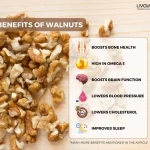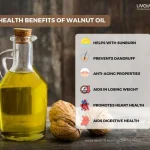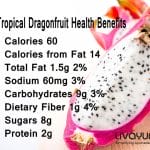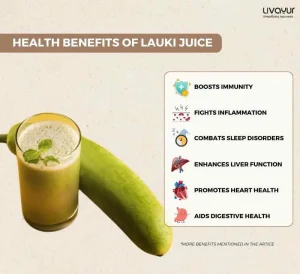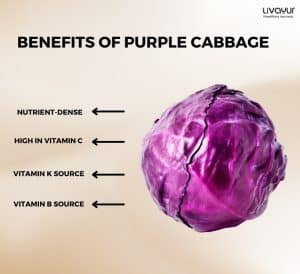
Tomatoes are a common ingredient in many households around the world. Not only are they delicious, but they are also packed with nutrients that offer a wide range of health benefits. Tomatoes are rich in vitamins, minerals, antioxidants, and other phytochemicals that can help to improve your overall health and well-being.
- Tomatoes are Rich in Nutrients
Primary Benefit: Good source of vitamins A and C, potassium, and folic acid.
Secondary Benefit: Low in calories and can help boost the immune system and promote wound healing [1].
- Tomatoes Contain Antioxidants
Primary Benefit: Contain antioxidants such as lycopene, beta-carotene, and vitamin C.
Secondary Benefit: Antioxidants help to protect the body from free radicals, which can cause damage to cells and lead to diseases such as cancer and heart disease [2].
- Tomatoes Help to Improve Heart Health
Primary Benefit: Rich in lycopene, which reduces the risk of heart disease and lowers levels of LDL cholesterol.
Secondary Benefit: Contains potassium, which helps to lower blood pressure [3].
- Tomatoes Help to Reduce Inflammation
Primary Benefit: Contain lycopene, which reduces inflammation in the body.
Secondary Benefit: Chronic inflammation can lead to diseases such as arthritis, cancer, and heart disease [4].
- Tomatoes May Help to Reduce the Risk of Cancer
Primary Benefit: Contain lycopene, which reduces the risk of certain types of cancer, including prostate, breast, and lung cancer.
Secondary Benefit: Lycopene reduces oxidative stress and inflammation in the body, which can lead to cancer [5].
- Tomatoes May Help to Improve Digestion
Primary Benefit: Good source of fibre, which helps to improve digestion and reduce the risk of constipation.
Secondary Benefit: Fiber helps to reduce the risk of colon cancer [6].
- Tomatoes May Help to Improve Skin Health
Primary Benefit: Contain vitamin C, which is important for the production of collagen, a protein that keeps the skin firm and elastic.
Secondary Benefit: Lycopene reduces the risk of sunburn [7].

- Tomatoes May Help to Improve Eye Health
Primary Benefit: Contain vitamin A, which is important for healthy vision and protects the eyes from damage.
Secondary Benefit: Lycopene reduces the risk of cataracts [8].
- Tomatoes May Help to Boost Brain Function
Primary Benefit: Contain lycopene and other antioxidants that can help to protect the brain from damage.
Secondary Benefit: This may help to reduce the risk of Alzheimer’s disease [9].
- Tomatoes May Help to Reduce the Risk of Type 2 Diabetes
Primary Benefit: Contain chromium, which helps to regulate blood sugar levels.
Secondary Benefit: Lycopene and other antioxidants may help to reduce inflammation, which can lead to insulin resistance [10].
- Tomatoes May Help to Improve Bone Health
Primary Benefit: Contain vitamin K, which is important for bone health and helps to prevent osteoporosis.
Secondary Benefit: This may help to reduce the risk of fractures [11].
- Tomatoes May Help to Reduce the Risk of Asthma
Primary Benefit: Contains vitamin C, which helps to reduce inflammation in the airways.
Secondary Benefit: Lycopene and other antioxidants may help to reduce inflammation in the body, which can trigger asthma attacks [12].
- Tomatoes May Help to Improve Muscle Function
Primary Benefit: Contains potassium, which is important for muscle function and can help to reduce muscle cramps.
Secondary Benefit: This may help to improve athletic performance [13].
- Tomatoes May Help to Boost the Immune System
Primary Benefit: Contain vitamin C, which is important for immune function.
Secondary Benefit: Lycopene and other antioxidants may help to reduce inflammation and oxidative stress, which can weaken the immune system [14].
- Tomatoes May Help to Promote Healthy Hair
Primary Benefit: Contains biotin, which is important for healthy hair growth and may help to prevent hair loss.
Secondary Benefit: Contains vitamins A and C, which help to produce sebum, an oily substance that moisturizes the scalp and keeps hair healthy [15].
How to Consume Tomatoes? [1, 2, 14]
- Eat Raw Tomatoes
One of the easiest ways to consume tomatoes is by eating them raw. You can add them to salads or sandwiches or simply snack on them as a healthy snack.
- Drink Tomato Juice
Drinking tomato juice is a great way to get all the benefits of tomatoes in a refreshing and easy-to-consume form. You can make your juice at home or buy it from the store.
- Add Tomatoes to Soups and Stews
Tomatoes are a great addition to soups and stews. They add flavour and nutrients to your meals.
- Make Tomato Sauce
Tomato sauce is a versatile ingredient that can be used in a variety of dishes, from pasta to pizza to meat dishes.
- Grill or Roast Tomatoes
Grilling or roasting tomatoes can bring out their natural sweetness and add flavour to your dishes.
- Use Tomatoes as a Topping
Tomatoes make a great topping for burgers, sandwiches, and pizzas.
- Use Tomatoes in Salsas and Dips
Tomatoes are a great addition to salsas and dips, adding flavour and nutrition to your snacks.
- Use Tomatoes in Smoothies
Tomatoes can be added to smoothies for a healthy and refreshing drink that is packed with nutrition.
Conclusion
In conclusion, tomatoes are a nutritious and versatile food that offers a wide range of health benefits. Whether you eat them raw, drink them in juice form, or add them to your favourite recipes, incorporating tomatoes into your diet can help to improve your overall health and well-being.
Disclaimer: This article is written from a health and lifestyle perspective.
References:
- https://www.ncbi.nlm.nih.gov/pmc/articles/PMC7823427/
- https://www.ncbi.nlm.nih.gov/pmc/articles/PMC7464847/
- https://www.ncbi.nlm.nih.gov/pmc/articles/PMC5974099/
- https://www.ncbi.nlm.nih.gov/pmc/articles/PMC8626194/
- https://www.ncbi.nlm.nih.gov/pmc/articles/PMC3850026/
- https://www.ncbi.nlm.nih.gov/pmc/articles/PMC3972926/
- https://www.healthline.com/health/tomato-benefits-for-skin#potential-benefits
- https://www.ncbi.nlm.nih.gov/pmc/articles/PMC7738640/
- https://www.ncbi.nlm.nih.gov/pmc/articles/PMC7464847/
- https://www.ncbi.nlm.nih.gov/pmc/articles/PMC9000630/
- https://www.ncbi.nlm.nih.gov/pmc/articles/PMC7582596/
- https://www.ncbi.nlm.nih.gov/pmc/articles/PMC1974844/
- https://www.mdpi.com/2304-8158/10/1/45
- https://www.ncbi.nlm.nih.gov/pmc/articles/PMC8869745/
- https://www.medicalnewstoday.com/articles/273031#benefits






